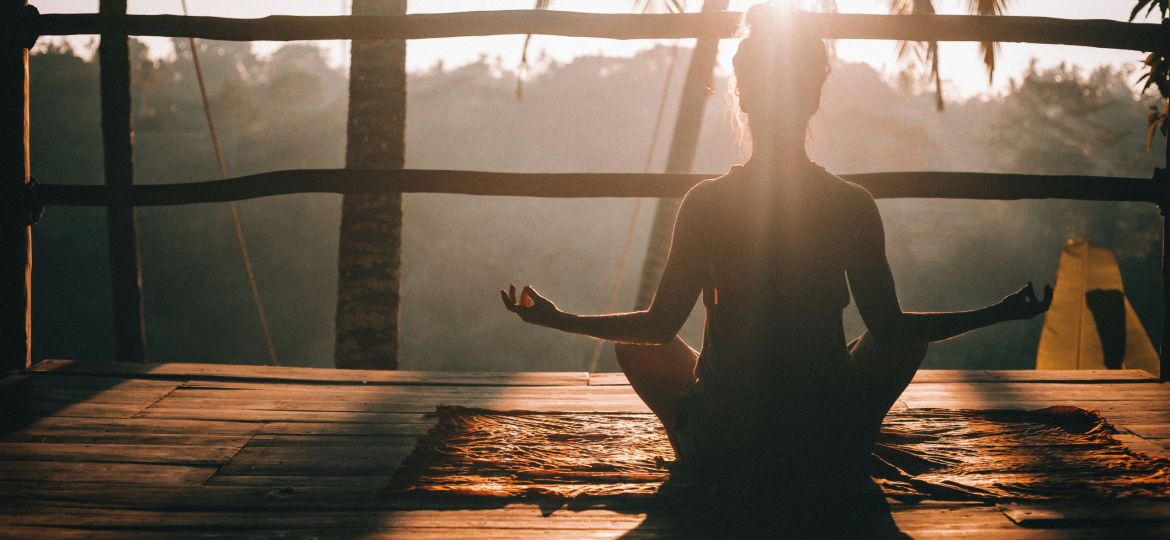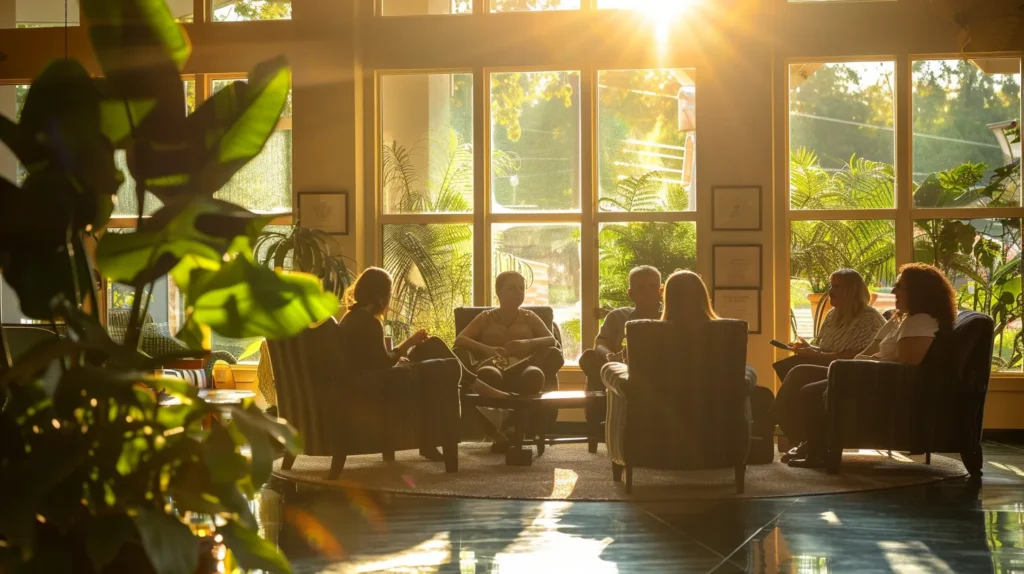
Sober Living in Hot Springs: 5 Essential Healthy Habits
Building Healthy Habits in Sober Living Environments at Rehab Centers in Hot Springs, Arkansas Many individuals recovering from methamphetamine addiction struggle with forming healthy habits in sober living houses. This article will discuss essential healthy habits, the importance of support systems, and effective strategies for maintaining these habits. Readers will gain practical insights into fostering a supportive environment, understanding the role of health insurance in accessing recovery support services, and the significance of structure, such as curfews, in maintaining sobriety. By addressing these key points, the content aims to support those navigating recovery challenges in Hot Springs, Arkansas.
Essential Insights on Sober Living and Recovery at SOZO
- Sober living environments support recovery with structured routines and community engagement
- Incorporating mindfulness practices aids in stress management and coping strategies during recovery
- Physical activity plays a crucial role in enhancing both mental and physical well-being
- Access to professional counseling provides tailored support essential for navigating addiction challenges
- Building a strong support network fosters emotional stability and reinforces commitment to recovery
Identifying Sober Living Environments in Hot Springs, Arkansas



Sober living environments in Hot Springs, Arkansas, offer essential support for patients transitioning from rehab to everyday life. Key features of effective facilities include life skills training, access to meditation practices, and recreational activities that promote well-being. A comparison of rehab centers in the area will highlight the unique characteristics of each sober living option, ensuring informed decisions for recovery.
Overview of Sober Living Environments
Sober living environments in Hot Springs, Arkansas, play a vital role in assisting individuals recovering from addiction rehab. These facilities create a balanced atmosphere where residents can focus on physical fitness, mindfulness, and developing healthy habits. Unlike nursing homes, sober living homes encourage engagement in activities that enhance energy and reduce the risk of relapse, helping residents build a stable foundation for their recovery journey.
| Feature | Description |
|---|---|
| Physical Fitness | Facilities often include exercise programs to promote health and well-being. |
| Life Skills Training | Residents learn skills essential for daily living and independence. |
| Meditation Practices | Relaxation techniques to manage stress and maintain focus. |
| Recreational Activities | Structured activities that foster community and engagement. |
| Access to Support | Residents receive guidance from professionals and peers throughout their recovery. |
Key Features of Effective Sober Living Facilities
Effective sober living facilities in Hot Springs, Arkansas, prioritize creating an environment that fosters motivation and understanding among residents. These centers encourage individuals to experiment with new, healthy routines while providing support to minimize the risk of relapse. Key features include structured programs that focus on daily living skills and community engagement, ensuring that residents are equipped with the tools needed for sustained recovery rather than feeling like they are in a nursing setting without active participation.
Comparing Rehab Centers in Hot Springs
When analyzing rehab centers in Hot Springs, Arkansas, individuals seeking recovery must consider various factors that contribute to a sustainable lifestyle. Facilities that offer comprehensive support for opioid use disorder often integrate nutrition and exercise into their programs, promoting a balanced approach to recovery. Additionally, some centers utilize naltrexone as a part of their treatment plans, providing residents with additional tools to manage cravings and enhance their journey towards sobriety.
Finding the right sober living environment is just the start. Building essential healthy habits makes the journey meaningful and lasting.
Essential Healthy Habits for Sober Living



Establishing daily routines is crucial in sober living, helping individuals navigate the challenges of alcohol detoxification and drug withdrawal. Incorporating nutritional practices and engaging in regular physical activity support overall health, while prioritizing mental health and mindfulness reduces stress. Building a support network enhances recovery, aligning with therapy goals and standards set by the Joint Commission to ensure effective treatment.
Establishing Daily Routines
Establishing daily routines is foundational for individuals in sober living environments, providing a structure that fosters a positive mindset essential for recovery. Incorporating practices such as morning meditation and regular physical activity promotes relaxation and stress reduction, crucial for those overcoming addiction challenges. Engaging in empathy-driven group sessions, such as those offered through Christian counseling, can reinforce supportive relationships, while understanding the role of treatments like methadone helps residents navigate their recovery journey effectively:
| Routine | Benefits |
|---|---|
| Morning Meditation | Promotes relaxation and a positive mindset. |
| Physical Activity | Enhances overall health and reduces stress. |
| Group Counseling | Builds supportive relationships and fosters empathy. |
| Nutritional Practices | Supports physical recovery and well-being. |
| Structured Activities | Encourages community engagement and skill development. |
Incorporating Nutritional Practices
Incorporating nutritional practices into daily routines at treatment centers in Hot Springs, Arkansas, is essential for residents striving to build healthy habits during sober living. A balanced diet not only supports physical recovery but also equips individuals with the energy needed to engage in strength training and various activities offered at the facility. Proper nutrition serves as a vital coping mechanism, helping individuals manage stress and cravings more effectively as they navigate their recovery journey, ultimately reducing the fee for extra support services related to emotional well-being.
Engaging in Regular Physical Activity
Engaging in regular physical activity is crucial for residents in rehab centers, including those in Hot Springs, Arkansas, as it contributes to both mental and physical well-being. Exercise not only improves overall health but also serves as a healthy outlet for managing stress and reducing symptoms associated with withdrawal from substances, including buprenorphine. By incorporating structured activities that cater to various interests and fitness levels, these facilities can promote a supportive environment that minimizes feelings of violence or aggression, while also recognizing the potential impacts of gender differences on participation and motivation.
Prioritizing Mental Health and Mindfulness
Prioritizing mental health and mindfulness is essential for individuals living in sober environments, as it helps them manage the discomfort of withdrawal and the pain associated with addiction recovery. Practicing mindfulness techniques requires discipline, enabling residents to stay grounded and focused on their recovery journey. Incorporating accountability measures, such as therapy facilitated by professionals from Cigna, can ensure individuals receive appropriate support and guidance in conjunction with any necessary medication, ultimately fostering a more balanced and stable recovery.
| Strategy | Description |
|---|---|
| Mindfulness Practices | Techniques like meditation that enhance self-awareness and reduce stress. |
| Discipline Development | Establishing routines that promote consistency and a positive mindset. |
| Accountability Systems | Support from peers and professionals to maintain commitment to recovery. |
| Medication Management | Collaborations with healthcare providers to ensure proper use of medications. |
Building a Support Network
Building a support network is essential for individuals in sober living environments, particularly within the context of rehab centers in Hot Springs, Arkansas. Engaging with groups such as SMART Recovery and LGBTQ support communities provides residents with a sense of belonging and understanding, which is crucial for emotional well-being. Additionally, establishing connections that focus on employment opportunities not only aids in personal development but also cultivates a stable foundation for success in Central Arkansas, ensuring individuals have resources to draw upon as they navigate their recovery journey.
Healthy habits lay a strong foundation. Yet, true strength often comes from those who walk beside us in the journey of sober living.
The Role of Support Systems in Sober Living



Support systems play a vital role in fostering healthy habits within outpatient sober living environments at rehab centers in Hot Springs, Arkansas. Peer support groups encourage shared experiences and gratitude among residents, while family involvement provides essential emotional backing. Access to professional counseling, including resources offered by providers such as Aetna, enhances recovery efforts, and various community resources further support those navigating issues like sexual abuse, ensuring a comprehensive approach to building resilience and healthier habits.
Peer Support Groups
Peer support groups are a fundamental component of sober housing in rehab centers, offering residents a platform to share experiences, challenges, and successes. Participation in these groups fosters a sense of community and accountability, which is essential for building healthy habits during recovery. By connecting individuals with similar experiences, these groups can provide valuable insights into hygiene practices, emotional well-being, and the importance of utilizing private health insurance for ongoing care, all while enjoying the therapeutic atmosphere of the nearby Hot Springs National Park.
Family Involvement
Family involvement is a critical element in establishing healthy habits within sober living environments. Engaging family members throughout the recovery process not only enhances emotional support but also helps individuals facing addiction to rebuild trust and relationships. For instance, family members can participate in educational workshops about whole grain nutrition or breathing techniques to manage stress, thereby becoming active participants in fostering a supportive home environment, which can be crucial for those affected by domestic violence.
| Support System Element | Description |
|---|---|
| Family Education | Workshops on nutrition and healthy communication for families. |
| Emotional Support | Family members provide encouragement and understanding during recovery. |
| Relationship Building | Rebuilding trust and connections to prevent relapse. |
| Community Resources | Accessing support groups and workshops for families. |
Access to Professional Counseling
Access to professional counseling is vital in supporting residents of sober living environments, particularly in addressing the complexities of addiction as a disease. Trained counselors help individuals navigate their recovery journey, offering tailored support that fosters sobriety and stability. For veterans, this inclusion of counseling can be particularly beneficial, as it provides a safe space to discuss unique challenges while offering strategies for healthy living in a natural environment:
| Support Element | Benefits |
|---|---|
| Professional Counseling | Guidance in managing emotional and psychological challenges related to addiction. |
| Training | Skill-building sessions designed to aid coping mechanisms and resilience. |
| Support Opportunities | Creating a supportive environment that enhances recovery efforts. |
| Veteran Focused Counseling | Specialized support addressing the unique experiences and needs of veterans in recovery. |
Community Resources Available
Community resources available in Hot Springs, Arkansas, play a crucial role in supporting individuals in sober living environments. These resources can assist residents in managing stress and boredom, which are common challenges during recovery from substance abuse. Local organizations often provide workshops on stress management techniques and access to recreational activities, helping to keep individuals engaged while addressing their needs for support during their recovery journey from drug dependency.
Support systems guide the journey, but the real work begins within. Understanding how to sustain healthy habits is key to lasting change, and these strategies will pave the way forward.
Strategies for Sustaining Healthy Habits



Setting achievable goals promotes personal development and behavior change, essential for sustaining healthy habits in sober living environments. Tracking progress allows residents to identify areas of improvement, while finding accountability partners offers critical support. Celebrating small wins reinforces motivation and encourages a positive mindset, contributing to better sleep and overall well-being during their length of stay in rehab centers.
Setting Achievable Goals
Setting achievable goals is a fundamental component in building healthy habits within sober living environments at rehabs in Hot Springs, Arkansas. By aligning these goals with a focus on the mind and faith, individuals can cultivate confidence that fosters personal growth. For instance, residents can define specific, measurable objectives related to their recovery process, such as attending weekly therapy sessions at a methadone clinic or participating in community activities, enhancing their overall sense of purpose and commitment to sobriety.
Tracking Progress
Tracking progress is essential for individuals in sober living environments, as it allows them to monitor their advancements toward specific goals. Effective goal setting, such as establishing weekly benchmarks related to improving quality of life, ensures individuals remain focused on their recovery aspirations. Utilizing resources such as Tricare can offer additional support in pain management strategies, allowing residents to access necessary services for continued growth and development:
| Tracking Method | Benefits |
|---|---|
| Weekly Check-Ins | Encourages consistent self-assessment and reflection on goals. |
| Journaling | Helps document progress and emotional changes over time. |
| Support Group Feedback | Provides community input on personal achievements and challenges. |
| Resource Utilization | Accessing Tricare services for regular health checks. |
Finding Accountability Partners
Finding accountability partners is essential in the process of building healthy habits in sober living environments at rehab centers in Hot Springs, Arkansas. Peer support can create a safe space where residents share their struggles and successes, enhancing commitment to personal goals. According to the Commission on Accreditation of Rehabilitation Facilities, such partnerships can help individuals manage recovery-related challenges, including the emotional toll of previous injuries or trauma, by fostering mutual encouragement and responsibility.
| Accountability Partner Elements | Description |
|---|---|
| Shared Goals | Partners work together towards common recovery objectives. |
| Emotional Support | Providing encouragement during difficult moments in recovery. |
| Regular Check-Ins | Scheduled meetings to discuss progress and challenges. |
| Open Communication | Creating a trusting environment for honest feedback. |
Celebrating Small Wins
Celebrating small wins is a powerful strategy in structured living environments, particularly in rehab centers focused on recovery from opioid addiction. Acknowledging each step taken toward improved skills and emotional well-being fosters a positive atmosphere among residents, reinforcing their commitment to healthier habits. For example, recognizing a week of consistent participation in health care activities can significantly boost motivation, encouraging individuals to strive for their recovery goals.
- Reinforces commitment to personal recovery goals.
- Encourages a positive atmosphere among residents.
- Supports the development of vital skills.
- Enhances the overall effectiveness of the structured living environment.
Healthy habits build a solid foundation, but lasting change requires more than willpower. In the next section, discover the practical tools and resources that can support a vibrant and healthy life.
Tools and Resources for Healthy Living



Utilizing various tools and resources can significantly enhance the recovery experience for individuals in rehab centers in Hot Springs, Arkansas. Health tracking apps assist residents in maintaining a healthy diet and monitoring their progress. Meal planning guides provide essential information for nutritious eating, while fitness programs and community classes encourage active lifestyles. Additionally, online support groups offer vital connections among peers, fostering a sense of community during the recovery journey.
Apps for Health Tracking
Apps for health tracking serve as valuable tools for individuals in sober living environments at rehab centers in Hot Springs, Arkansas. These applications allow residents to monitor their dietary habits, physical activity, and overall wellness, fostering accountability during their recovery journey. By integrating features such as goal setting and progress tracking, these apps not only support healthy lifestyle choices but also encourage individuals to stay focused on their recovery objectives, ultimately enhancing their chances of maintaining sobriety.
Guides for Meal Planning
Guides for meal planning serve as essential resources for individuals in sober living environments at rehab centers in Hot Springs, Arkansas. By providing structured approaches to nutrition, these guides help residents develop balanced eating habits that support both physical recovery and mental well-being. Practical examples might include weekly shopping lists that emphasize whole foods and cooking tips for creating nutritious meals:
- Structured meal plans with balanced nutrients.
- Shopping lists focusing on whole foods.
- Cooking tips for easy and healthy meals.
Fitness Programs and Community Classes
Fitness programs and community classes in sober living environments at rehab centers in Hot Springs, Arkansas, play a crucial role in fostering healthy habits among residents. These initiatives not only encourage physical activity but also promote social interaction and camaraderie, helping individuals build connections as they navigate their recovery journey. Facilities often provide a variety of options, such as group exercise sessions, yoga, or outdoor activities, which can significantly enhance the overall recovery experience and support residents in achieving their wellness goals:
| Program Type | Description |
|---|---|
| Group Exercise Sessions | Encourages teamwork and accountability among participants. |
| Yoga Classes | Promotes relaxation and mindfulness through movement. |
| Outdoor Activities | Engages residents in nature while enhancing physical fitness. |
| Nutrition Workshops | Teaches healthy eating habits to complement physical activities. |
Online Support Groups
Online support groups are an invaluable resource for individuals in sober living environments at rehab centers in Hot Springs, Arkansas. These platforms provide a space where residents can connect with others facing similar challenges, fostering a sense of community and shared understanding. By participating in virtual meetings, individuals can share their experiences, receive guidance, and build trust with peers who understand the complexities of recovery, significantly enhancing their journey to sobriety:
- Accessibility to a supportive community at any time.
- Sharing of personal experiences and coping strategies.
- Opportunities for building lasting relationships.
- Access to moderated discussions for safe environments.
After exploring the tools that aid in healthy living, the next step is to see real people in action. The success stories from Hot Springs offer hope and lessons for anyone seeking to change their habits.
Case Studies of Successful Habit Formation in Hot Springs



Personal stories from rehab graduates illustrate the transformative power of healthy habits in sober living environments, showcasing their journeys towards recovery. Insights from rehab professionals further emphasize effective strategies that promote sustained success. Additionally, lessons learned from various sober living experiences provide practical guidance for both residents and their support networks, highlighting the importance of community and shared accountability.
Personal Stories From Rehab Graduates
Several rehab graduates from facilities in Hot Springs, Arkansas, have shared their experiences of successfully establishing healthy habits during their time in sober living environments. One individual emphasized the importance of daily exercise and group activities, which not only improved their physical health but also fostered a sense of community and belonging. Another graduate highlighted how the incorporation of mindfulness practices significantly helped in managing their stress and cravings, showcasing that tailored programs can effectively support long-term recovery.
Insights From Rehab Professionals
Rehab professionals in Hot Springs, Arkansas, emphasize the significance of structured routines in fostering lasting healthy habits among individuals in sober living environments. They note that integrating daily activities, such as group exercises and mindfulness practices, encourages engagement and social interaction, which are crucial for recovery. Moreover, professionals advocate for personalized treatment plans that address individual needs, thereby enhancing the likelihood of successful habit formation and long-term sobriety:
- Structured routines help create a stable environment.
- Social interactions through group activities foster community.
- Personalized treatment plans increase the effectiveness of recovery efforts.
- Daily mindfulness practices aid in stress management.
Lessons Learned From Sober Living Experiences
Successful sober living experiences in Hot Springs, Arkansas, highlight the significance of community support and structured routines in habit formation. Residents often report that engaging in regular group activities, such as exercise and mindfulness sessions, cultivates a sense of belonging and accountability, which are essential for lasting recovery. Practical lessons include the need for personalized goals and the ongoing importance of seeking support from both peers and professionals:
- Daily exercise and community engagement strengthen relationships among residents.
- Mindfulness practices effectively manage stress and enhance coping mechanisms.
- Creating personalized recovery goals fosters greater commitment and focus.
- Continuous support from peers and professionals aids in maintaining healthy habits.
Frequently Asked Questions
What are sober living environments available in Hot Springs, Arkansas?
Hot Springs, Arkansas offers various sober living environments, including group homes, supportive housing, and recovery residences, which promote sobriety while providing community support, structured living, and resources for individuals in recovery from substance use disorders.
What healthy habits should individuals focus on in sober living?
Focusing on healthy habits in sober living includes regular exercise, balanced nutrition, mindfulness practices, consistent sleep patterns, and strong social connections. These habits support overall well-being and essential mental health during recovery.
How do support systems enhance sober living experiences?
Support systems enhance sober living experiences by offering emotional support, accountability, and shared resources. These networks foster a sense of community, helping individuals maintain sobriety and develop healthy coping strategies through connections with peers and mentors.
What strategies can help maintain healthy habits over time?
To maintain healthy habits over time, individuals can set realistic goals, track progress, establish routines, find support systems, and practice self-compassion. Consistency and flexibility are key to adapting to life’s changes while sustaining wellness.
Are there specific resources for promoting healthy living in recovery?
Numerous resources exist to support healthy living in recovery, including counseling services, community support groups, nutrition programs, and fitness classes. These tools foster physical, mental, and emotional well-being, essential for a successful recovery journey.
Conclusion
Building healthy habits in sober living environments at rehab centers in Hot Springs, Arkansas, is crucial for fostering long-term recovery. Establishing daily routines, engaging in physical activities, and prioritizing mental health create a solid foundation for individuals overcoming addiction challenges. By utilizing support systems, professional counseling, and community resources, residents can effectively navigate their recovery journeys. Ultimately, these strategies empower individuals to embrace healthier lifestyles, enhancing their resilience and commitment to sobriety.

